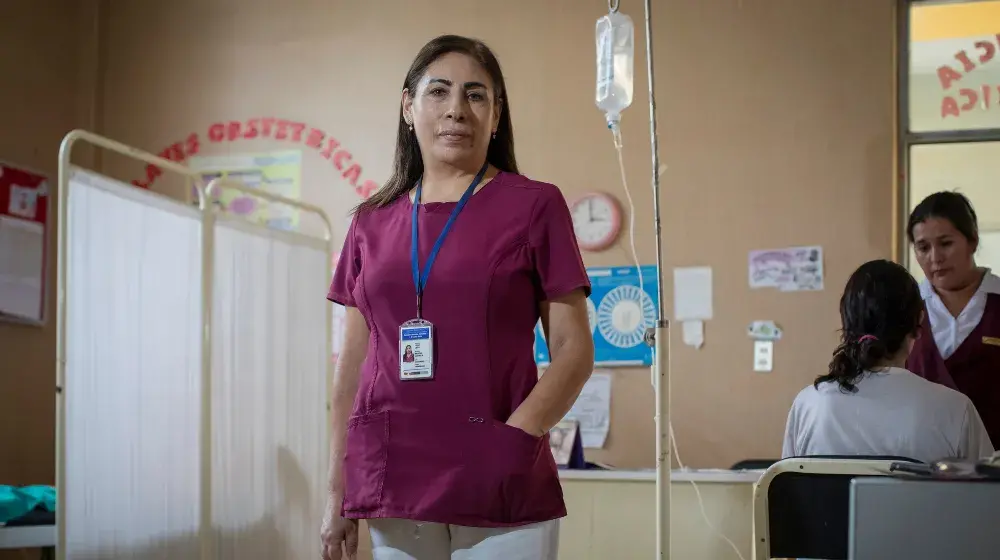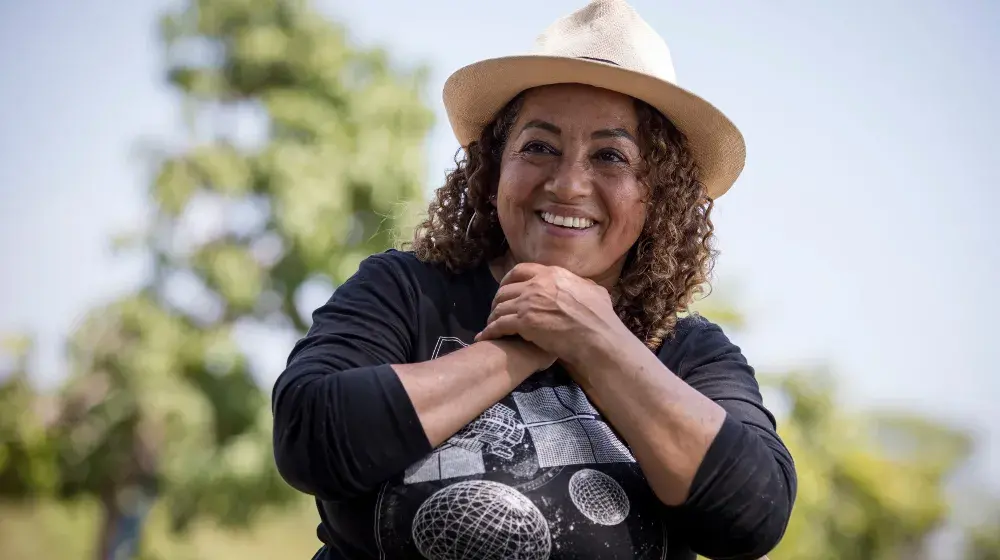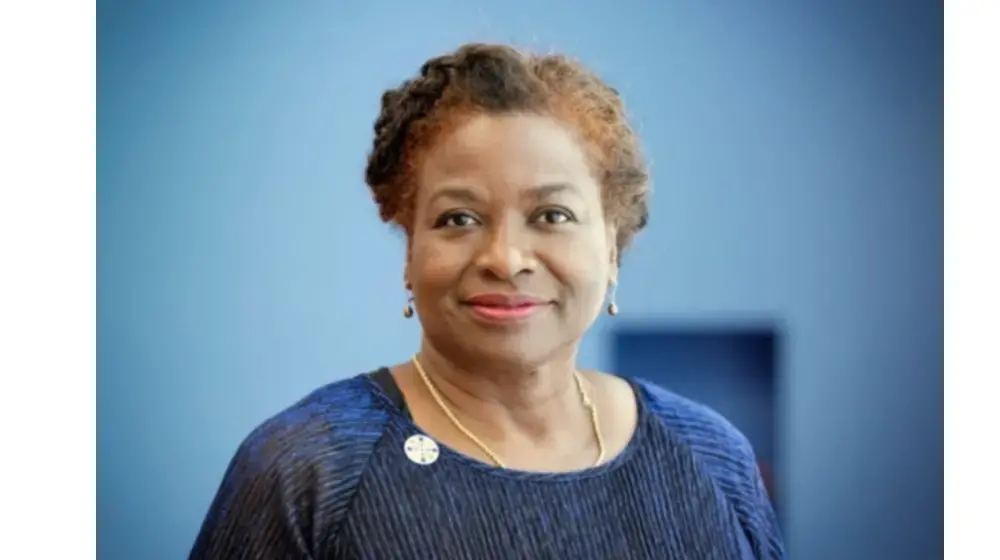CONDORCANQUI, Peru – The jungle in the district of El Cenepa, with its dense vegetation and powerful rivers, is where time seems to have stood still. Communities are scattered and often can only be reached after hours of travel in small boats navigating the surrounding rivers. In these localities, Dafne Aquino and the mobile brigade team bring hope and information to those who need it most.
The UNFPA mobile brigade members travel through the communities to spread essential services and messages about the Nuwa Senchi project, funded by USAID. This mobile team, composed of nine dedicated women, faces numerous challenges to reach the most remote areas, aiming to empower indigenous Amazonian women and ensure their access to essential services for protection against gender-based violence. Through a survivor-centered approach, the project prevents violence through effective communication campaigns, strengthens inter-institutional collaboration, and raises awareness among state and community authorities.
A psychologist and team member, Dafne is one of the visible faces of this effort. "We face torrential rains, relentless sun, and long journeys from community to community, sometimes up to three hours on the river in small boats, with the constant risk of capsizing," Dafne explains. Despite these difficulties, the team persists. Before the project, some men in the communities used to say: "Before teaching about women's rights, you first have to teach them about their household duties." However, the perseverance of the brigade members is beginning to transform these ingrained mentalities.
In the village of Huampami, during a group assessment on the use of safe spaces, one of the participating women, who preferred to remain anonymous, commented that previously, the women in her community felt sad and vulnerable. After receiving the information and attending workshops, they now feel safer and more empowered. "Now we know our rights and are more willing to respond," she said. This was evident when the community tried to take land away from one of them; the women, united, did not let themselves be intimidated and defended their right to property.

The training sessions are conducted in various settings, from modest community centers to outdoor areas sheltered by Amazonian trees. The mobile brigade members hold workshops, talk with women and girls, and provide emotional support. "After nearly a year of work, empowering and guiding them in various situations, we have achieved that now they look at us and know they can talk to us," Dafne says proudly.
The project's impact is tangible. Nuwa Senchi, which means Strong Woman in the Awajún language, has reached over 13,000 people with culturally appropriate messages about gender-based violence prevention and service availability. Additionally, 210 women and girls have received dignity kits, and three educational campaigns have been implemented to change social and gender norms.
"Usually, on an emotional level, you come across so many stories that seem like novels, but they are real," Dafne explains. "Gender-based violence is not only discrimination, but also rape, murder, beatings, and humiliation."
UNFPA's commitment to leaving no one behind is reflected in every project action. During climate disasters, the lack of essential services increases vulnerabilities, especially for women and girls, who face higher risks of violence and difficulties in accessing sexual and reproductive health care.

The brigade members also work with strategic partners in healthcare, education, protection, and justice to ensure a comprehensive response to gender-based violence. The combined efforts between different sectors and the dedication of the brigade members have allowed for significant progress in the region.
For Dafne, each day is an opportunity to make a difference in the lives of women, girls, and adolescents, building a future free of violence in the Amazonas region. "We are empowering them, giving them that courage, like showing them: look, yes, you can. Being women working here, we are also allowing them to see beyond. Because many times, they are limited to what is in the community," she reflects, aware of the lasting impact of her work. Her tireless effort and commitment are a powerful reminder of the importance of resilience and hope in the fight for human rights.





